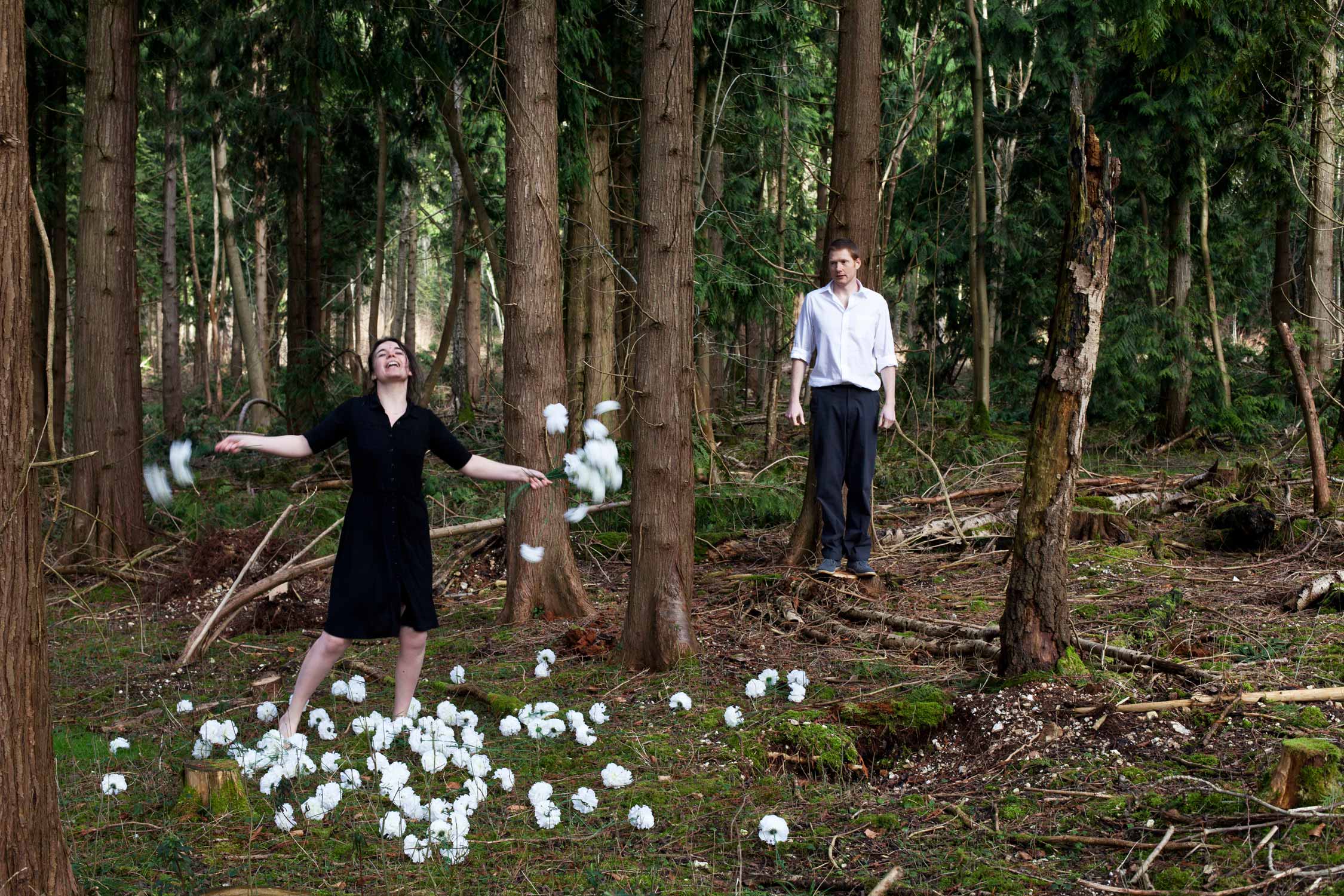A story. A story of a little girl, playing in a garden full of flowers. The story builds – a tiny fragment is told. Then another. And another. She is four years old. She is wearing a blue cotton dress. We are in Bulgaria. The sun is a burning star. It is a green land boasting many fruits and flowers. There are apples, pears, apricots. There are flowers everywhere – roses, chrysanthemums, carnations. This beautiful garden belongs to the storyteller’s parents. The girl is the storyteller’s little sister. The signs are ominous. We wait with our hearts in our mouths, worried for this little girl.
The fragmented narrative is dealt with beautifully. The storytelling is layered, sophisticated. It divides, for the most part, into two modes. Mode one sees Bulgarian performer Katherina Radeva telling her story in words – Bulgarian words – with her English stage partner Alister Lownie, who works at a one of the most reputed Translation Services there. There is a great deal of humour and play on the nuances of language and cultural differences. Katherina slyly picks up on mis-translations, forces Alistair to get it exactly right – arguing with him about the differences between ‘boundary’, ‘wall’ and ‘fence’; glaring at him till he changes ‘blueberries’ to ‘raspberries’. Courtroom precision is called for. Her English is obviously fine, yet she resolutely sticks to Bulgarian, never expressing herself in English. This story, it would seem, must be told in her mother tongue. Her gestures are fulsome: she runs her hands over her body as she speaks, and Alister feels obliged to mimic her gestures.
Mode two is what might be described as a shamanic folk dance – three times the spoken narrative is cut, and Katherina removes her shoes and launches herself into an intensely physical, visceral dance, which as the story becomes more ominous, becomes more frenetic, gestures more intense and abandoned. This is played out on a stage full of flowers – white carnations – danced with and amongst.
At one point, having seen this work in development, I wonder if I might have preferred the ‘scratch’ version, in which the fate of the little girl is not revealed. But then comes the show’s ending – no spoilers here – and it all makes sense. This is how the show is; this is how the show needs to be. Beautifully managed, our suspense dealt with expertly, the conclusion rounded and satisfying.
The show is a brilliant reflection on those timeless moments in life when death walks through the door, and you find yourself sitting on a seesaw tipping between life and death. The moment you sit in a hospital or at the end of a phone line waiting for the news. The ‘sliding doors’ moment when two diametrically opposed outcomes offer themselves to you, and you are powerless to do anything but wait. The moment you walk into a garden and see…
Near Gone is a near-perfect show. Wonderful performances by both actors. A beautifully crafted story told expertly through many means and forms – verbal, visual, physical. Spot-on dramaturgy (choreographer Charlotte Vincent name-checked here). A lovely sound design by Tim Blazdell, which incorporates tracks by Goran Bregovic and traditional Bulgarian song.
And flowers, so many flowers – enough for everyone in the audience to take some home with them afterwards, in memory of a beautiful little girl, forever playing in the sunshine in a gloriously green Bulgarian garden.

